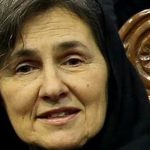Date of Birth: September 24, 1902
Zodiac Sign: Libra
Date of Death: June 3, 1989
Biography
Ruhollah Khomeini, born Ruhollah Mousavi on September 24, 1902, in Khomeyn, Iran, was a prominent Iranian religious leader and politician who led the Iranian Revolution of 1979. He became the country’s Supreme Leader, a position created in the wake of the revolution to ensure the rule of Islamic law. Khomeini’s rise to power marked the end of 2,500 years of Persian monarchy and the beginning of the Islamic Republic of Iran. Khomeini was deeply influenced by Shi’a Islam from an early age and pursued religious studies in Qom, where he became a prominent scholar. His teachings and writings, particularly those criticizing the Shah of Iran, cemented his reputation as a formidable opposition figure. In 1964, Khomeini was arrested and exiled for his outspoken criticism of the Shah’s regime and its close ties with the United States and Israel. During his 14 years in exile, Khomeini lived in Turkey, Iraq, and finally France, where he continued to inspire and organize resistance against the Shah. The culmination of his efforts came in 1979 when widespread protests and civil unrest forced Shah Mohammad Reza Pahlavi to flee the country. Khomeini returned to Iran in February 1979 to a hero’s welcome, and soon after, the monarchy was abolished, and the Islamic Republic was established. As the Supreme Leader, Khomeini wielded immense power, both politically and religiously, until his death on June 3, 1989.
5 Interesting Facts about Ruhollah Khomeini
1. Khomeini’s return to Iran in 1979 from exile was met by millions of Iranians in what is considered one of the largest political rallies in history.
2. He authored numerous books on Islamic philosophy, law, and ethics, which continue to influence Islamic thought.
3. Khomeini’s anti-Western rhetoric and policies led to the severance of diplomatic relations between Iran and the United States, most notably marked by the 444-day hostage crisis at the U.S. Embassy in Tehran.
4. Under his leadership, Iran underwent significant social and political changes, including the implementation of Sharia law and the establishment of the Revolutionary Guard.
5. Khomeini issued a fatwa against author Salman Rushdie in 1989, calling for his death due to the perceived blasphemy in Rushdie’s book “The Satanic Verses.”
5 Most Interesting Quotes from Ruhollah Khomeini
1. “The Islamic Revolution of Iran was a great movement that caused a quake in the world.”
2. “In Islam, the legislative power and competence to establish laws belong exclusively to God Almighty.”
3. “We do not worship Iran, we worship Allah. For patriotism is another name for paganism. I say let this land (Iran) burn. I say let this land go up in smoke, provided Islam emerges triumphant in the rest of the world.”
4. “Al-Quran is a book of guidance for mankind and a criterion of right and wrong.”
5. “The ink of the scholar is more holy than the blood of the martyr.”
Highest Net Worth Achieved
As a religious and political leader of a theocratic state, Ruhollah Khomeini did not accumulate personal wealth in the way that is typical for business or entertainment figures. Thus, there are no credible estimates of his personal net worth. His influence and legacy, however, were immense.
Children
Ruhollah Khomeini had six children: two sons and four daughters. His most prominent child was Ahmad Khomeini, who played a significant role in his father’s political activities and was considered a potential successor before his untimely death in 1995. His other children are Mustafa Khomeini, who died under mysterious circumstances in 1977, and daughters Zahra Mostafavi Khomeini, Sadiqeh Khomeini, Farideh Khomeini, and Fatemeh Khomeini.
Relevant Links
3. [Ruhollah Khomeini – BBC](https://www.bbc.co.uk/history/historic_figures/khomeini_ayatollah.shtml
4. [Ruhollah Khomeini – Islamic Republic of Iran](https://en.irna.ir/tag/Ruhollah+Khomeini
5. [Ruhollah Khomeini – The Guardian](https://www.theguardian.com/world/ayatollah-ruhollah-khomeini
